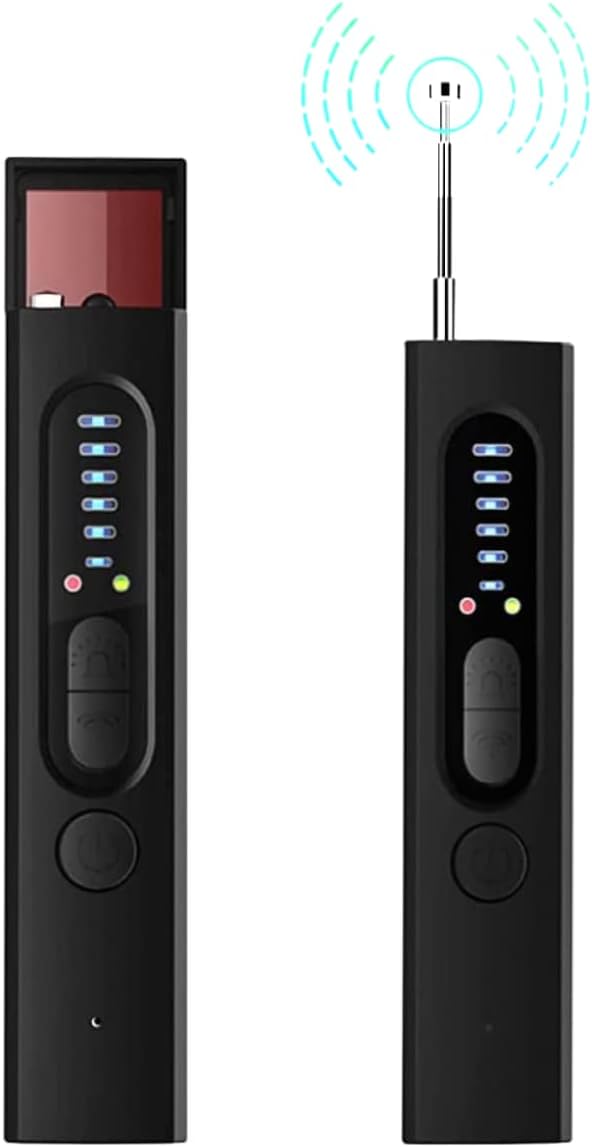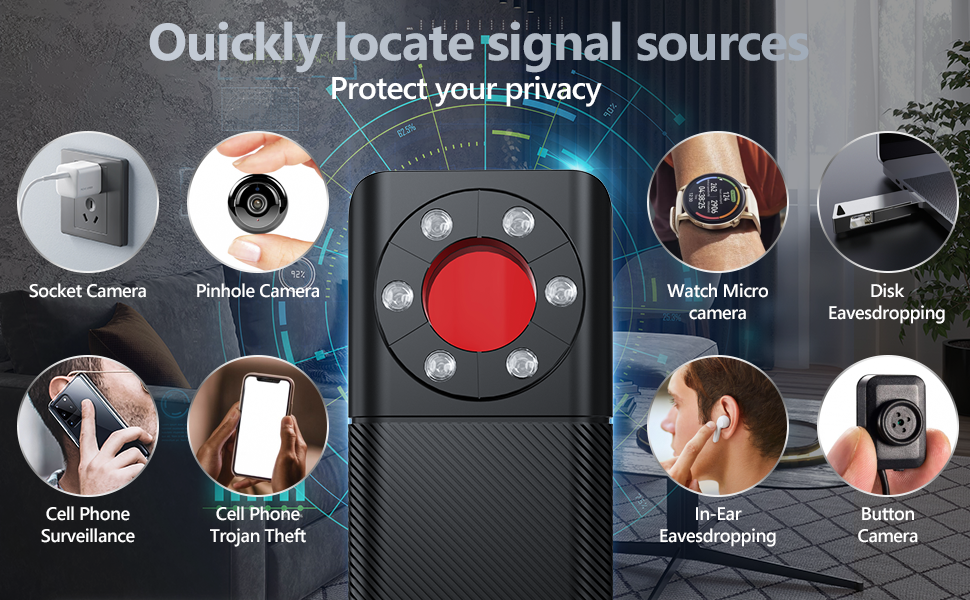In today’s hyper-connected world, the threat of digital espionage is more real than ever. From governments and corporations to individuals, everyone is a potential target for sophisticated spying techniques. This has led to a surge in demand for anti-spy detectors – devices and software designed to identify and neutralize various forms of surveillance. This article delves into the growing market of anti-spy detectors, exploring their functionality, the types available, and the crucial considerations for both individuals and organizations.
Understanding the Threat Landscape

Before diving into the solutions, it’s vital to understand the breadth of the problem. Modern spying techniques aren’t limited to the clunky bugging devices of old. Sophisticated malware can infect computers and smartphones, silently recording conversations, accessing files, and tracking location data. Hidden cameras, both physical and embedded in everyday objects, can compromise privacy in unexpected ways. Furthermore, sophisticated microphone and camera exploits can allow attackers to remotely access your devices without your knowledge. The sheer variety and sophistication of these threats make a robust defense strategy necessary.
Types of Anti-Spy Detectors
The market offers a range of anti-spy detectors, each targeting specific threats:
1. RF Detectors: Hunting for Wireless Bugs
Radio Frequency (RF) detectors are the workhorses of anti-spy detection. These devices scan for wireless signals emitted by hidden cameras, microphones, and other listening devices. They typically display the strength and frequency of detected signals, allowing users to pinpoint the location of the spy device. The effectiveness of an RF detector depends on its sensitivity and frequency range. Higher sensitivity allows the detection of weaker signals, while a broader frequency range increases the likelihood of detecting a wider variety of devices.
2. Bug Sweepers: Comprehensive Surveillance Detection
Bug sweepers often combine RF detection with other technologies to offer a more comprehensive solution. They might include features like spectrum analyzers for a more precise frequency identification, magnetic field detectors to locate wired bugs, and even infrared (IR) cameras to find hidden cameras. Bug sweepers are generally more expensive than standalone RF detectors but provide a much more thorough sweep.
3. Software-Based Detectors: Protecting Your Digital Footprint

Software-based anti-spy detectors focus on identifying and removing malware and spyware from computers and smartphones. These programs typically monitor system activity, scanning for suspicious processes and identifying potential threats. They can offer real-time protection, blocking malicious downloads and preventing unauthorized access. Regular updates are crucial for software-based detectors to stay ahead of evolving threats.
4. GPS Tracking Detectors: Protecting Location Privacy

Concerned about your vehicle or personal belongings being tracked? GPS tracking detectors identify any unauthorized GPS trackers that might be attached to your car or belongings. These detectors typically scan for GPS signals, alerting you to any unknown tracking devices.
Choosing the Right Anti-Spy Detector

Selecting the right anti-spy detector depends on your specific needs and budget. Consider the following factors:
- Type of Threats: Are you primarily concerned with wireless bugs, software malware, or GPS tracking?
- Sensitivity and Range: Higher sensitivity and a broader range will lead to better detection capabilities.
- Features: Consider additional features such as spectrum analysis, magnetic field detection, or GPS signal identification.
- Ease of Use: Some detectors are more user-friendly than others. Consider your technical expertise when choosing a device.
- Budget: Prices vary significantly depending on the features and capabilities.
Comparing Anti-Spy Detectors: A Quick Overview
The market is flooded with various options. Thorough research is crucial to compare features, accuracy, and user reviews before making a purchase. Websites and forums dedicated to cybersecurity offer valuable insights and user feedback. Reading independent reviews from reputable sources helps to discern marketing claims from genuine performance.
Practical Advice for Users
Regardless of the anti-spy detector you choose, remember these crucial practices:
- Regular Scans: Conduct regular scans of your environment and devices to ensure early detection of any suspicious activity.
- Software Updates: Keep your anti-spy software updated to benefit from the latest threat detection capabilities.
- Security Practices: Strong passwords, multi-factor authentication, and regular software updates are crucial alongside anti-spy detectors.
- Professional Help: For complex cases or large-scale surveillance detection, consider consulting with a cybersecurity professional.
Conclusion: A Growing Need for Protection
The market for anti-spy detectors reflects a growing awareness of the pervasive threat of digital espionage. While no single solution guarantees complete protection, employing a multi-layered approach combining hardware and software detectors, along with strong security practices, provides a robust defense against various spying techniques. Staying informed about the latest threats and technologies is paramount to safeguarding your privacy and security in an increasingly interconnected world.